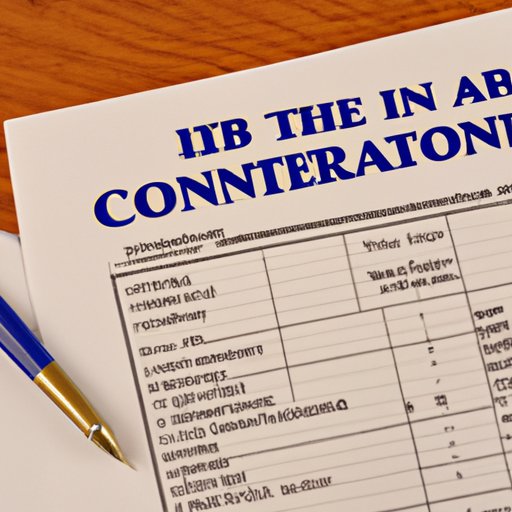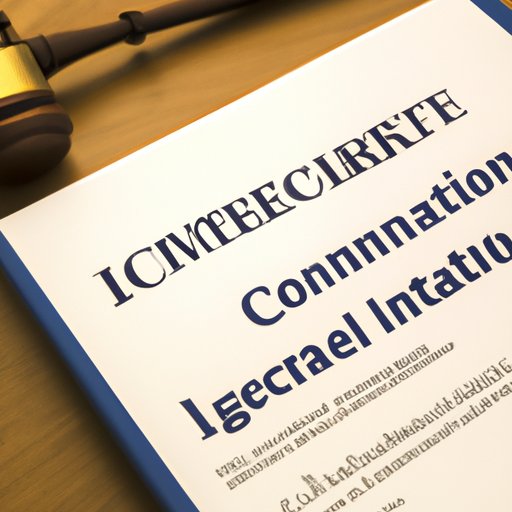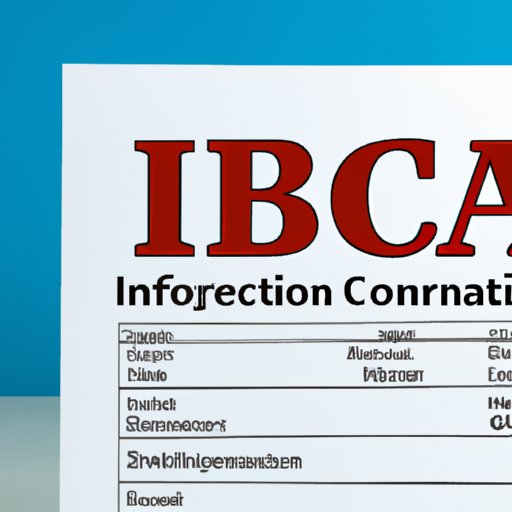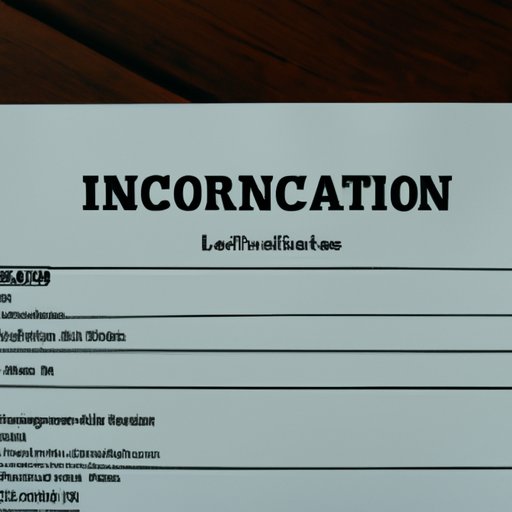Introduction
An LLC (limited liability company) is a business structure that offers personal asset protection and flexible taxation options. An LLC can be formed by one or more individuals and provides them with the same limited liability protection afforded to corporations without the need for complex paperwork or formalities. If you are considering starting a business in Indiana, then forming an LLC may be the best option for you.
Overview of LLCs
An LLC is a type of business entity that combines aspects of both a corporation and a partnership. It offers owners the limited liability protection of a corporation, meaning that the members’ personal assets are protected from any debts or liabilities incurred by the business. Additionally, an LLC has the flexibility of a partnership in that the members can decide how the company is managed and taxed.
Benefits of Forming an LLC in Indiana
Forming an LLC in Indiana offers many benefits, including:
- Limited Liability Protection – Members are not personally liable for the debts or liabilities of the business.
- Flexible Tax Options – LLCs can choose to be taxed as a corporation, partnership, or sole proprietorship.
- Ease of Formation – Forming an LLC in Indiana is relatively simple and straightforward.
Steps for Starting an LLC in Indiana
The process for forming an LLC in Indiana is relatively simple, but there are some steps that must be taken in order to ensure that the business is properly established. The following steps outline the process for forming an LLC in Indiana:
Choose a Business Name
The first step in forming an LLC in Indiana is to choose a business name. The name must comply with the state’s naming regulations and must be distinguishable from other business names in the state. Additionally, the name must contain one of the following words or abbreviations: “limited liability company,” “LLC,” “L.L.C.,” or “ltd. liability company.”
File the LLC Formation Document
Once you have chosen a name for your LLC, you must file the Articles of Organization with the Indiana Secretary of State. This document will provide information such as the name, purpose, and members of the LLC. The filing fee for the Articles of Organization is $90.
Obtain an EIN from the IRS
Once your Articles of Organization have been filed, you will need to obtain an Employer Identification Number (EIN) from the Internal Revenue Service (IRS). An EIN is used to identify the LLC for tax purposes and can be obtained for free from the IRS website.
Create an Operating Agreement
An Operating Agreement is a document that outlines the rules and regulations for running the LLC. It should include information such as the management structure, voting rights, and financial responsibilities of the members. Although it is not required by law, it is highly recommended that all LLCs in Indiana have an Operating Agreement.
Comply with State and Local Regulations
In addition to filing the Articles of Organization, you must also comply with any applicable state and local regulations. This may include obtaining necessary licenses and permits, registering with the Indiana Department of Revenue, and paying any applicable taxes. You should consult with a qualified business attorney to ensure that you are in compliance with all applicable laws.

Required Documents for Forming an LLC in Indiana
In order to form an LLC in Indiana, the following documents must be filed with the Indiana Secretary of State:
Articles of Organization
The Articles of Organization is the main document used to form an LLC in Indiana. It must include the LLC’s name, purpose, and members. The filing fee for the Articles of Organization is $90.
Statement of Authority
The Statement of Authority is a document that outlines the powers and authority of the LLC. It must be signed by each member of the LLC and filed with the Articles of Organization.
Registered Agent
An LLC must appoint a registered agent, who is responsible for receiving any legal documents on behalf of the LLC. The registered agent must be either a resident of Indiana or a business entity authorized to conduct business in Indiana.
Operating Agreement
An Operating Agreement is a document that outlines the rules and regulations for running the LLC. It should include information such as the management structure, voting rights, and financial responsibilities of the members. Although it is not required by law, it is highly recommended that all LLCs in Indiana have an Operating Agreement.

Legal Requirements for Operating an LLC in Indiana
In addition to filing the necessary documents to form an LLC in Indiana, there are certain legal requirements that must be met in order to maintain the LLC’s status. These requirements include:
Filing Annual Reports
All LLCs in Indiana must file an annual report with the Indiana Secretary of State. The report must include information such as the LLC’s current address and the names and addresses of its members. The report must be filed by April 15th of each year.
Holding Meetings
LLCs in Indiana must hold an annual meeting of its members. At the meeting, the members must discuss the LLC’s finances and make any necessary decisions regarding the operation of the business. The meeting must be held at least once every 12 months.
Maintaining Records
It is important to keep accurate records of all transactions and activities related to the LLC. This includes keeping track of income, expenses, and other financial information. It is also important to keep minutes of all meetings and to maintain a copy of the Operating Agreement.

Tax Implications of Forming an LLC in Indiana
When forming an LLC in Indiana, there are several tax implications that must be considered. These include:
State Taxes
In Indiana, LLCs must pay personal property taxes and corporate income taxes. The amount of taxes owed will depend on the type of business and the amount of income generated. Additionally, LLCs may be subject to other state taxes such as sales and use taxes.
Federal Taxes
LLCs must also pay federal taxes on any income earned. Depending on the type of business, an LLC may be taxed as a corporation, partnership, or sole proprietorship. It is important to speak with a qualified tax professional to determine the best tax structure for your LLC.
Conclusion
Forming an LLC in Indiana is a relatively simple process that can offer many benefits to business owners. By following the steps outlined above and complying with all applicable laws and regulations, you can ensure that your LLC is properly established. Additionally, understanding the tax implications of forming an LLC in Indiana can help you make informed decisions about how to structure your business.
By taking the time to understand the legal and tax requirements for forming an LLC in Indiana, you can ensure that your business is properly established and has the best chance of success.
(Note: Is this article not meeting your expectations? Do you have knowledge or insights to share? Unlock new opportunities and expand your reach by joining our authors team. Click Registration to join us and share your expertise with our readers.)
